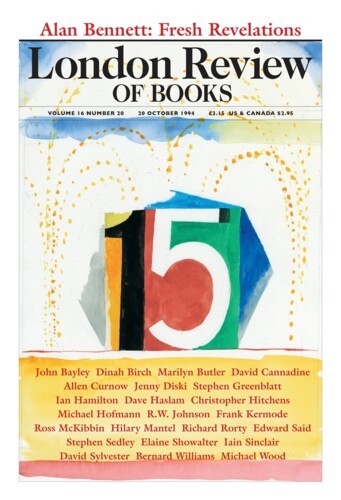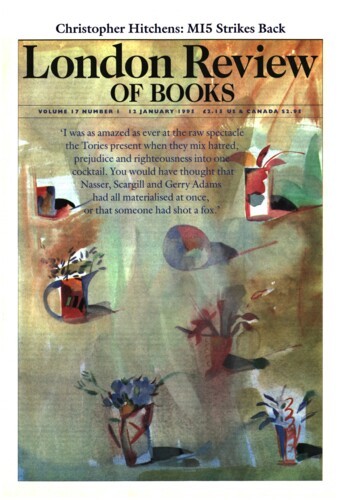Hanging Offence
David Sylvester, 21 October 1993
The Royal Academy’s exhibition of ‘American Art in the 20th Century’ at Burlington House and the Saatchi Gallery is a honeymoon with a marvellous girl who has been stitched into her nightie. No less than one in three of the 230 works arouse a desire to have them in a permanent collection here, but no more than three of the rooms in the show give a feeling of satisfaction.





